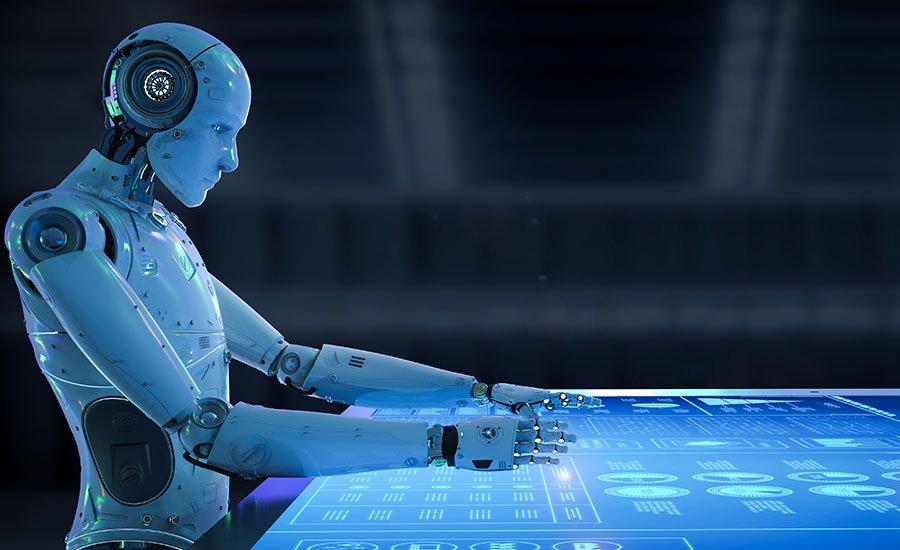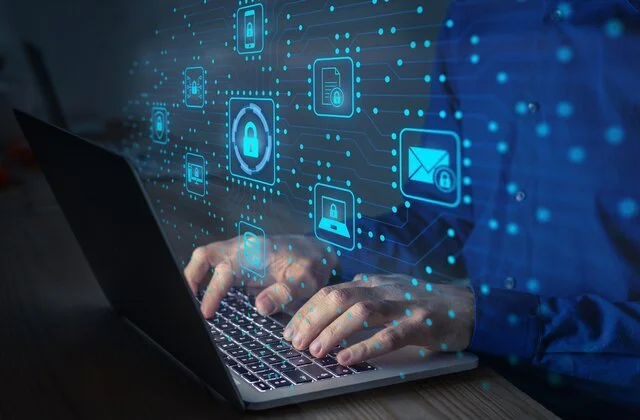
CYBER SECURITY CONSULTING SERVICE AWARDS AND RECOGNITIONS
CyberSecOp's comprehensive managed security services, cyber security consulting, professional services, and data protection technology are recognized as industry-leading threat detection and response solutions by major analyst firms, key media outlets, and others.
AI the Future of Cyber Security
AI tools can sift through enormous amounts of data to look for patterns and learn about user behavior. This allows for the early detection of hackers before they cause harm.
Companies involved in cyber security are investing money into these technologies to fend off attacks and are starting to reap the rewards. AI-based technologies' capabilities are growing exponentially, enabling businesses to identify more sophisticated cyber threats before they materialize; more companies will likely start using AI tools as their usability increases.
As a result, more complex attacks will be recognized, making AI a crucial tool in the fight against cybercrime.
Artificial intelligence and machine learning are becoming more and more popular among businesses as
Artificial intelligence (AI) functions like a computer program focused on gaining success. Machine learning (ML), on the other hand, is a self-learning tool that evolves as it gains experience. Combining the two can guarantee accuracy and success in the cybersecurity industry.
Traditional Cyber Security
The fundamental problem with traditional cyber security measures is that it cannot keep up with the scale of the threat today. Conventional methods to collect and analyze information lead to an overload of data. It is labor-intensive and, therefore, prone to manual errors. Since they need more visibility into the network, it is also challenging to prepare against a potential threat.
AI in Cyber Security
In comparison, artificial intelligence in cyber security has a higher success in detecting possible threats and defending against them.
1. Network Threat Identification
This is the most basic use case for AI in cyber security today. More than 70% of businesses today are dependent on AI-enabled network security platforms. Furthermore, as enterprises share sensitive data over networks, AI-enabled systems are better equipped to protect the data transmitted or stored.
2. AI Email Monitoring
AI is used today to monitor incoming and outgoing emails to safeguard against cyber threats like phishing. The most probable risks are reported to the security personnel, and appropriate action can be taken. This becomes very important in the finance sector. Here, anomaly detection is used to identify phishing attacks and misdirected emails, prevent data breaches and identify other cyber security threats.
3. AI Endpoint Protection
Traditional anti-virus software can scan files for known viruses. The software cannot safeguard your data without security updates on new viruses. On the other hand, software that uses AI can detect a threat owing to anomaly detection or unusual behavior. Therefore it is better equipped to predict, detect and prevent a cybersecurity threat.
4. AI-based User Behaviour Modeling
In some cyber security attacks, the login id of a person can be manipulated by a complete takeover, without the person's knowledge. The only way to identify and stop this is by identifying a change in the behavior pattern of their activity. With AI technology solutions, such changes can be easily detected and security can then be alerted to investigate the matter further.
Conclusion
Cyber security systems with AI can anticipate a threat and deploy necessary action to prevent an attack. As a result, more and more corporations today are making special allowances in their budgets for upgrading to AI-enabled cyber security systems. As long as companies continue to feed accurate data, the system will swiftly detect any deviation from the baseline.
What is the difference between Computer Security and Cyber Security?
What is the Difference Between Computer Security and Cyber Security?
Cybersecurity and computer security are frequently confused as synonyms, according to the public. It's not accurate, though. Even though both of these phrases are frequently used when discussing how to safeguard and boost the effectiveness of the IT infrastructure, there are a few significant distinctions between them.
Computer security deals with protecting endpoints, such as desktops, laptops, servers, virtual machines, and IaaS, from malware and other threats. Cybersecurity, however, deals with safeguarding data against unauthorized access, such as that from hackers.
The Difference Between Computer Security and Cyber Security
What computer security?
In terms of computer security, we're talking about the hardware and software security of a standalone computer. Maintaining stand-alone machines with the latest updates and proper patches is one of the most critical aspects of computer security.
Protecting your actual desktop and laptop computers as well as other hardware is the focus of computer security. Additionally, these systems need to be appropriately updated and patched. Yet by safeguarding the data kept on your networks, computers, printers, and other devices, cyber security can cover all of these operations. All connected digital devices are safe.
What is Cyber security?
Cybersecurity is the process of preventing unauthorized access to your company's sensitive data and systems through the incorporation of security protocols. Cyber threats must be reduced not only from a business standpoint but also to prevent fines related to data loss. Cyber security is intended to safeguard your digital footprint, to put it simply.
Your systems can be hacked by cybercriminals as well. If found to be insecure, they can easily mine and profit from selling your data on the dark web. For midsized businesses without a sizable PR and legal team at their disposal, a data breach can result in irreparable harm in the form of high regulatory fines, loss of reputation, and diminished customer trust, all of which are challenging to overcome. The size of a company has no bearing on a hacker's behavior. To see what they can catch, they want to cast the widest net they can.
Data is the most crucial element in either case. Your business has valuable consumer and proprietary data. The value of data is understood by cyber criminals. Threat actors are constantly looking for the most exposed systems. A lot of small businesses are simple targets. The use of mobile devices to access corporate data is growing, which increases security risks. Employees invite cybercriminals into the organization when they check their work email off the company network. When you collaborate with the CyberSecOp group that provides cyber security services, you will have professionals on your side to manage and mitigate advanced and persistent threats.
Information Security, Cybersecurity, IT Security, and Computer Security
The terms can frequently be used interchangeably. Computers handle data. Information technology includes the area of IT security, which typically relates to computers. As I said, computer security. Protecting systems from cyber threats is the definition of cybersecurity. Merriam-Webster describes "cyber" as "of, related to, or involving computers or computer networks."
Information security is what IT security is about information technology. Computer science is the parent of information technology. IT is the practical application of computer science, primarily for servers, PCs, supercomputers, data centers, and other endpoints. When referring to business, the terms information security, computer security, and cybersecurity can all be used interchangeably.


